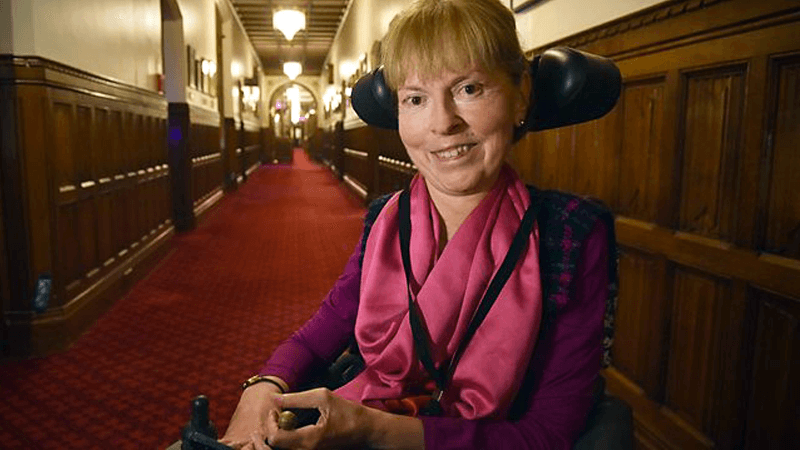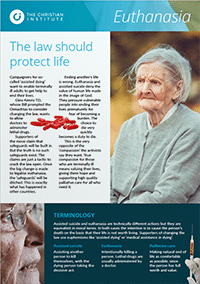A disabled peer has strongly rejected calls for a change in the UK’s assisted suicide laws to allow for people to be assisted in dying.
Baroness Campbell of Surbiton, who has a degenerative genetic disease and uses a wheelchair, was responding to the launch of a legal case by Noel Conway, who is seeking assistance from doctors to end his life.
The Baroness warned against the case saying it would be “highly dangerous” to legalise assisted suicide.
‘Fight to live’
We already have to fight to live; a right to die would be a huge and frightening burden.
Baroness Campbell of Surbiton
“Disabled people want to be valued by society and would see any legal change as a real threat,” she said.
Baroness Campbell said changing the law would “feed into society’s fear” that severe disability “is a state worse than death”.
“We already have to fight to live; a right to die would be a huge and frightening burden”, she added.
Defeated
It is the first High Court case since a Bill to legalise assisted suicide was soundly defeated in the House of Commons.
In 2015, following a lengthy debate, MPs voted 330 to 118 against Rob Marris’ Private Members’ Bill.
The result came following pressure from disabled rights groups, the medical profession, a number of charities and religious leaders.
Criminalise
Mr Conway is 67-years-old and has motor neurone disease.
He has already signed up with Swiss suicide facility Dignitas but fears his deteriorating health may not allow him to travel.
Dignity in Dying – formerly the Voluntary Euthanasia Society – are supporting his case. Conway’s legal team are seeking a declaration that the current law is not compatible with his basic human rights.
Under the law in England, Wales and Northern Ireland, a person who intentionally encourages or assists the suicide or attempted suicide of another person, commits an offence which carries a maximum prison sentence of 14 years.


